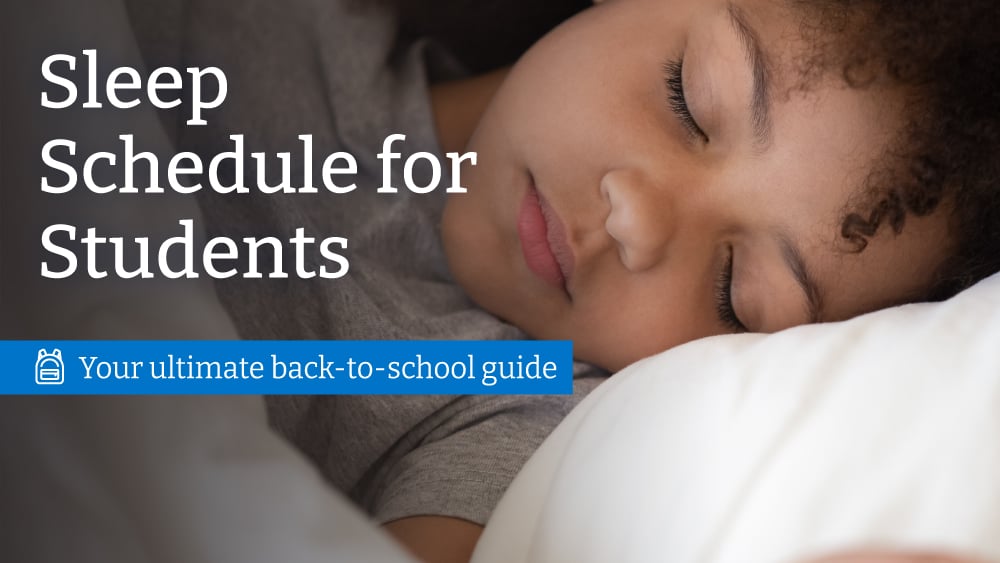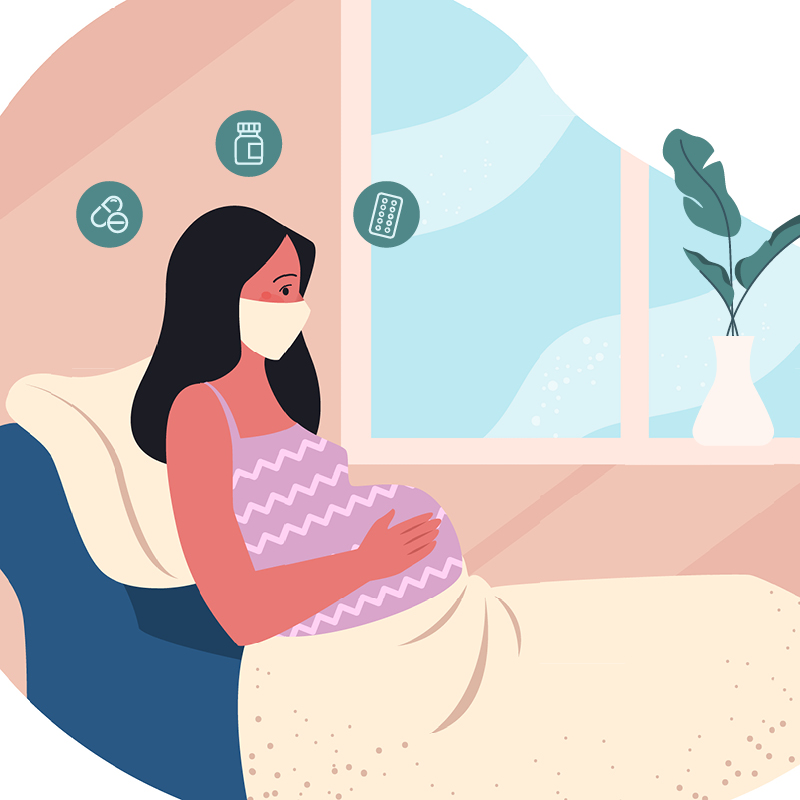As children and families prepare to return to school this fall, returning to a regular sleep schedule may prove to be a challenge. Whether your student is in elementary school or a senior in high school, getting back in the rhythm of a normal sleep schedule will help with sleep-related issues that many students already face.
More than two-thirds of students in the United States report getting less than the recommended amount of sleep, according to data from the Center for Disease Control and Prevention (CDC); short sleep duration (less than 8 hours) is highest among 12th graders, and nearly 60 percent of middle school students report not getting enough sleep on school nights.
Alice Hoagland, PhD, Insomnia Clinic Director at Rochester Regional Health, says that resetting your child's sleep schedule doesn’t begin with sending them to bed earlier; it starts with waking them up earlier.
“Wake up time is more important than bed time,” said Hoagland. “There’s a gland in your brain that regulates your body 24 hours a day, and that gland gets set by when you wake up in the morning, not by when you go to bed.”
Side effects of not sleeping enough
Once school begins, kids don’t have the option of napping or waking up late when it comes to catching up on sleep. Dr. Hoagland reminds parents that a lack of sleep can have negative side effects that can impact their kid’s performance in school.
“They lose focus, they can bounce off the walls and their attention span can be all over the place,” Dr. Hoagland said. “Teenagers who don’t get enough sleep can underperform in school which can lead to mood issues, like low-grade depression or anxiety brought on by lack of sleep. Ensuring they don’t feel this way starts with a normal sleep schedule.”
Young children
Children who haven’t gone through puberty yet, usually younger than 7th or 8th grade, should be getting 9-10 hours of sleep a night.
Generally, getting younger children back on a regulated sleeping schedule is easier than for older kids. The best way to help pre-pubescent children readjust to a schedule is by waking them up at the same time every morning.
Action Item #1: In the week leading up to school, start waking your child up about an hour earlier every three to four days, prevent them from taking afternoon naps, and filling their days with activities so when nighttime comes around, they’ll be fighting to stay awake.
Teens
Getting used to an early wake time is much more difficult for teens. These students should be getting 9 hours of sleep a night, but that can be a challenge for many.
“Once children hit puberty, they start to develop a delayed sleeping phase, meaning they stay up later at night and sleep later in the morning,” says Dr. Hoagland.
The biological shift makes it more difficult for them to wake up early because their normal sleep time can range from midnight to 2 am, and their wake time can often be as late as noon.
Action Item #2: To help your children get used to waking up early, slowly begin to move their wake time earlier and earlier. Start shifting that time back by one hour each week until they are waking up at the required time.
Self-managing sleep
Dr. Hoagland reminds parents that guiding their children through transitioning their sleep schedules should be more of a conversation, and less of demand.
Talking with your kids and asking them when they would be comfortable waking up will help them respond more willingly to the change in schedule. But how can parents ensure their children are waking up on time?
“Have a conversation with your child and ask them what time they want to wake up to be ready for school," Dr. Hoagland said. "Decide on that time together and remind them each morning to help them remember to wake up.”
Action Item #3: Dr. Hoagland suggests working with your child to develop a plan rather than enforcing one on them. Especially as children get older, they’ll respond better if you involve them in decision-making.
Helping kids sleep better
If your child is struggling to fall asleep at night, there are a few things that may be able to help them in the moment. The environment in which a child is trying to fall asleep can have an impact on their sleep quality.
To help them, try adjusting their sleep environment:
- Keep their room cool
- Make sure their room is dark
- Get rid of noises
- Use bed only for sleep. Encourage other activities be done outside of the bedroom.
Other behavioral changes can help improve quality of sleep:
- Regular exercise
- Avoid napping, especially as children get older
- Limit or avoid caffeine
- Keep a structured sleep schedule
- Adopt a bedtime routine
Common Question: How often should children be allowed to sleep in late?
“Children should only sleep in one day a week. Every other day, including one weekend day, they should be getting up earlier and avoid sleeping in late,” recommends Dr. Hoagland.








